Q+A | 'A hit to the community': Longtime editor of Whitehorse Star on the paper's demise
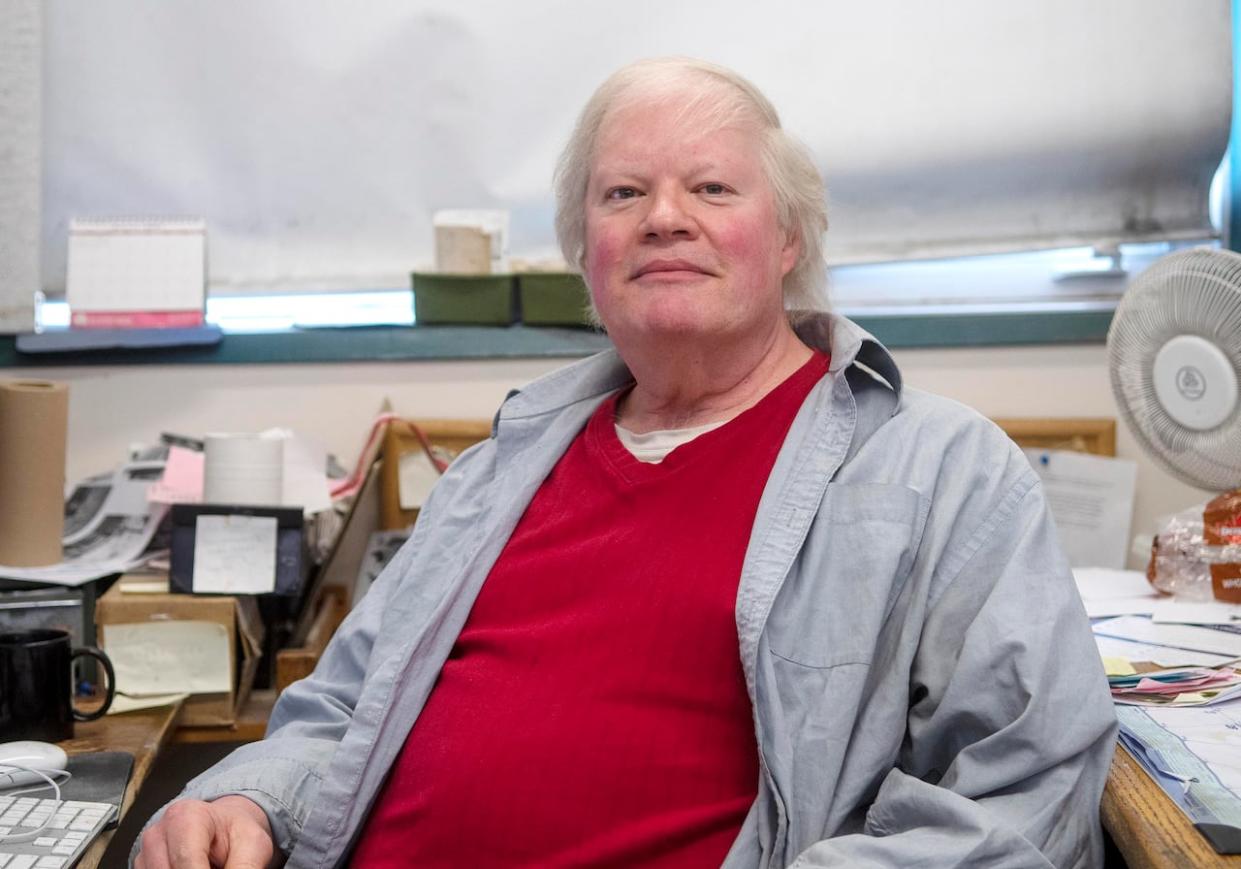
Jim Butler, longtime editor of the Whitehorse Star newspaper, says he's been "addicted" to ink and newsprint for nearly 50 years.
"Now it looks like I'm going to be called upon to break that habit," he said on Monday.
After 124 years, the Star is going out of business. It was announced in Friday's edition of the paper. The final issue will roll off the presses next month.
The Star — among the few independently-owned newspapers still operating in Canada — has a history that's closely entwined with the territory itself. It was founded in 1900, when the Klondike Gold Rush could still be considered current events.
The paper started as the Northern Star, and over the years became the White Horse Star, the Whitehorse Daily Star, and since 2019 when it ceased to be a daily, the Whitehorse Star.
Butler says it's been a "surreal" few days since he put the finishing touches on Friday's paper, with the announcement of the imminent closure.
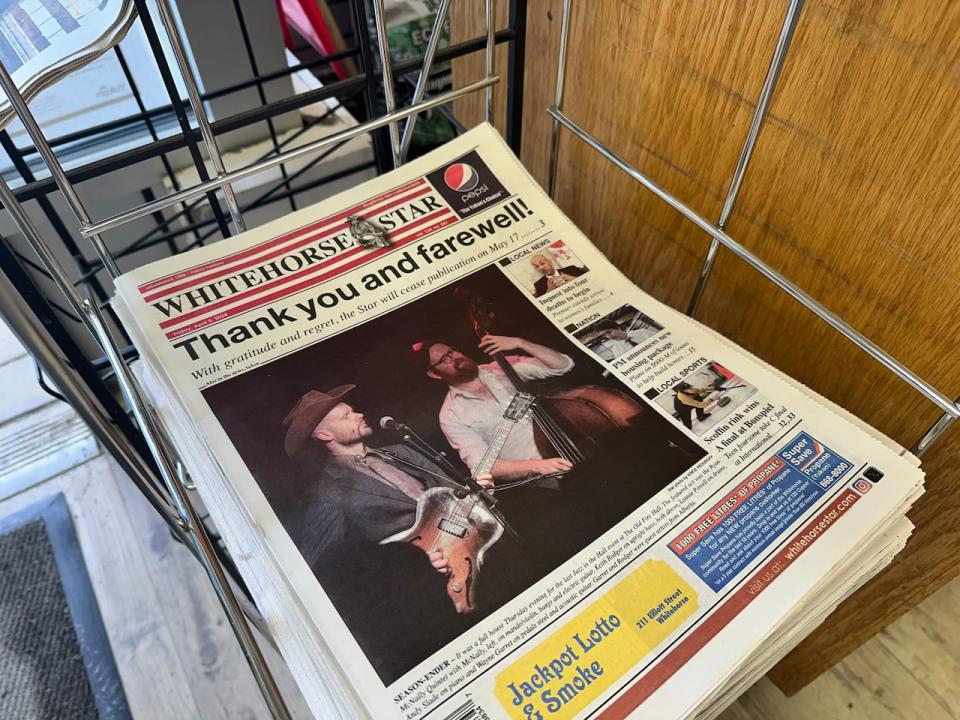
The Whitehorse Star announced in Friday's paper that it would will soon cease publication. (Caitrin Pilkington/CBC)
"I went home, filled the birdfeeders, fed the cat, walked to a lookout above the Takhini River valley, and rationalized that despite the very grim ending of my 43 years with this marvellous enterprise, the river will continue to flow and life will go on," he said.
Butler spoke to Yukon Morning host Elyn Jones on Monday, about the end of that "marvellous enterprise."
This conversation has been edited for length and clarity.
This is reflective time for you, obviously.
The people I feel badly about are not myself, but about my Star colleagues who are going to be out of work next month, and the loyal readers. We're about to enter into a real void of their supply of locally-produced news stories and photos. It's a hit to the community, I think.
There was a group that recently tried to come up with ideas to keep the paper going. What happened?
I can't get into the specifics. We all have to keep the, you know, the nuts and bolts of it confidential.
But talks went on for a period of time early this year, and in the end a mutually agreeable deal could never be made. And that's why the owners decided last week to take the steps that we're taking.
We are seeing newspapers shut down across the country. What has it been like for you from the editor's desk to see it get to this point for the Whitehorse Star?
Social media has been devouring newspaper revenue sources like some sort of crazed Pac-Man on the loose in 1982. It was us last week, it'll be someone else next week.
I'm not divulging any secrets when I say our full-page ads by major local and national businesses had a devastating drop-off in recent years. Most of our fliers are gone. Classified ads, 99 per cent eliminated. Our lucrative real estate supplement, gone. Very significant fall-offs in Yukon Government and City of Whitehorse print advertising. Legal ads, gone. Even birth and marriage announcements are non-existent in local newspapers.
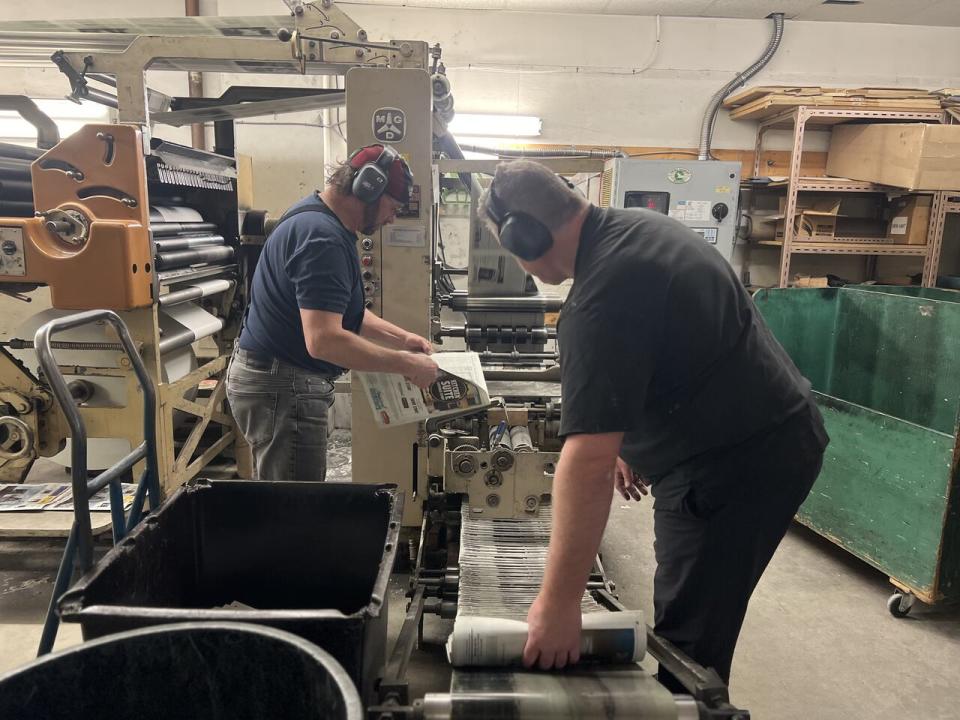
Papers being printed at the Whitehorse Star office earlier this year. (Mike Rudyk/CBC)
Another damaging blow to our industry that's not often talked about was the loss of our carriers. They were a lifeline to your paid circulation and distribution system. These young people were invaluable to us, and the relentless disintegration of that system of distribution was extremely detrimental to our cause and business case. Because if someone doesn't happen to go into a store during the couple of days a given newspaper is on the newsstand, that paper doesn't sell and then the advertisers are not impressed by that. So it's an endless circle.
And I won't even get into the problems of trying to recruit staff with today's housing predicament in Whitehorse, not to mention competing against public sector salaries.
So confronted with this perfect storm of challenges, it makes for a very grim operating environment for a newspaper indeed.
We were seeing people on the weekend respond — on social media, ironically — about things like having been a newspaper carrier, or a reporter or writer for the Whitehorse Star. What kind of reactions did you see from people who have worked at the paper, and from readers as well?
I have kind of been isolated all weekend. I live out of town and just wanted to lie low. I took some phone calls of regret. No phone calls of rejoicing, I'm happy to say.
I did get one critic telling me over the weekend, "Jim, you can finally meet your calling, you can volunteer at a soup kitchen now and edit alphabet soup."
Was that meant in bad spirit? I hope not!
No, I think it was a joke, trying to cheer me up over the last few days.
But yeah, I've spoken to other people who have been in touch and I'm gratified. And I'm actually very touched by the outpouring of regret over this. I think I underestimated the amount of people out there who would care, given the current state of newspapers. So thanks to all, for your sentiments and good feelings.
So why does local journalism matter? And why was it important for the Whitehorse Star to continue printing for all these years?
Well, when I had a full staff, I had as many as five writers in the summertime, including a summer student. We were just about everywhere, covering everything, in all levels of government, First Nations, politics, the courts.
I haven't been able to cover the courts in two years for lack of staff.
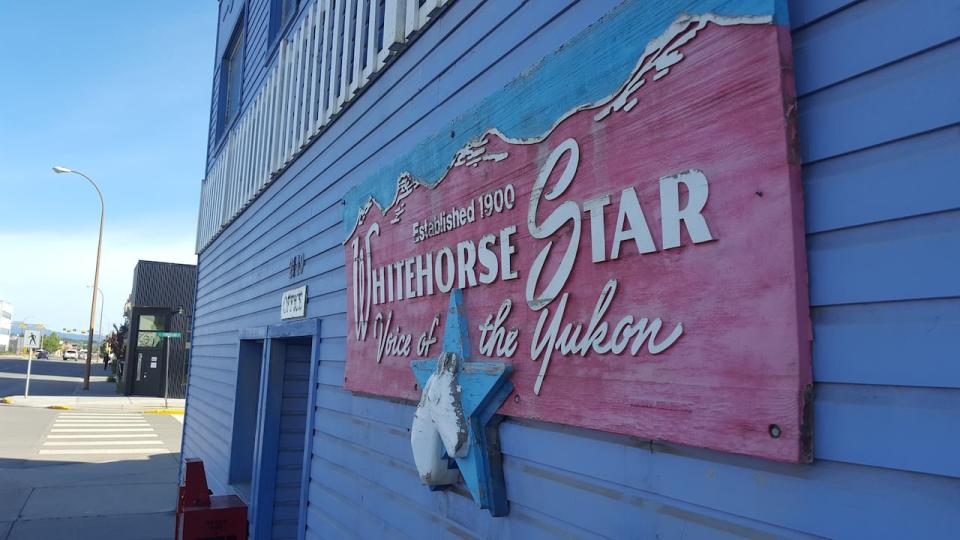
Outside the Whitehorse Star office in the Yukon capital. (Paul Tukker/CBC)
I think our departure will certainly leave a void in the quantity of local news and photos and letters to the editor, and you know, overall, I think one less voice standing up for democracy can never be painted as a positive element. And I hope people realize that.
That said, this community, I think, is extremely fortunate to have the number of newspaper outlets and radio and TV stations it has. And I can only say to my competitive colleagues: forge on, folks, because your work is supremely important.
I know lots of people have had their kids on the front page of the paper. What did it mean for that, bringing a community together and reflecting the community back to itself?
You're right, there are clippings that have been on refrigerators around the territory for almost 20 years. Kids grow into adults and the clippings are still there on their parents' fridges.
We tried to do what we could. [Longtime Star photographer] Vince [Federoff] was the hardest worker I've ever encountered in 45 years of journalism, and I hope whoever is left in the media field will make a conscientious effort — in fact, I'm confident they will — to try and fill this void.
What do you think the legacy of the Star will be?
Its history. It's 124 years old, it's one of the oldest businesses in Yukon history.
It began in a tent in 1899 in northern B.C. [at] Bennett, came to Whitehorse in 1900, it covered two World Wars, the Alaska Highway, moving the capital to Whitehorse in 1953, Robert F. Kennedy ascending Mount Kennedy in 1965, the land claim process, the evolution of Whitehorse from a sleepy dirt-road village into a growing cosmopolitan city — it's tremendous history over the century and a quarter.
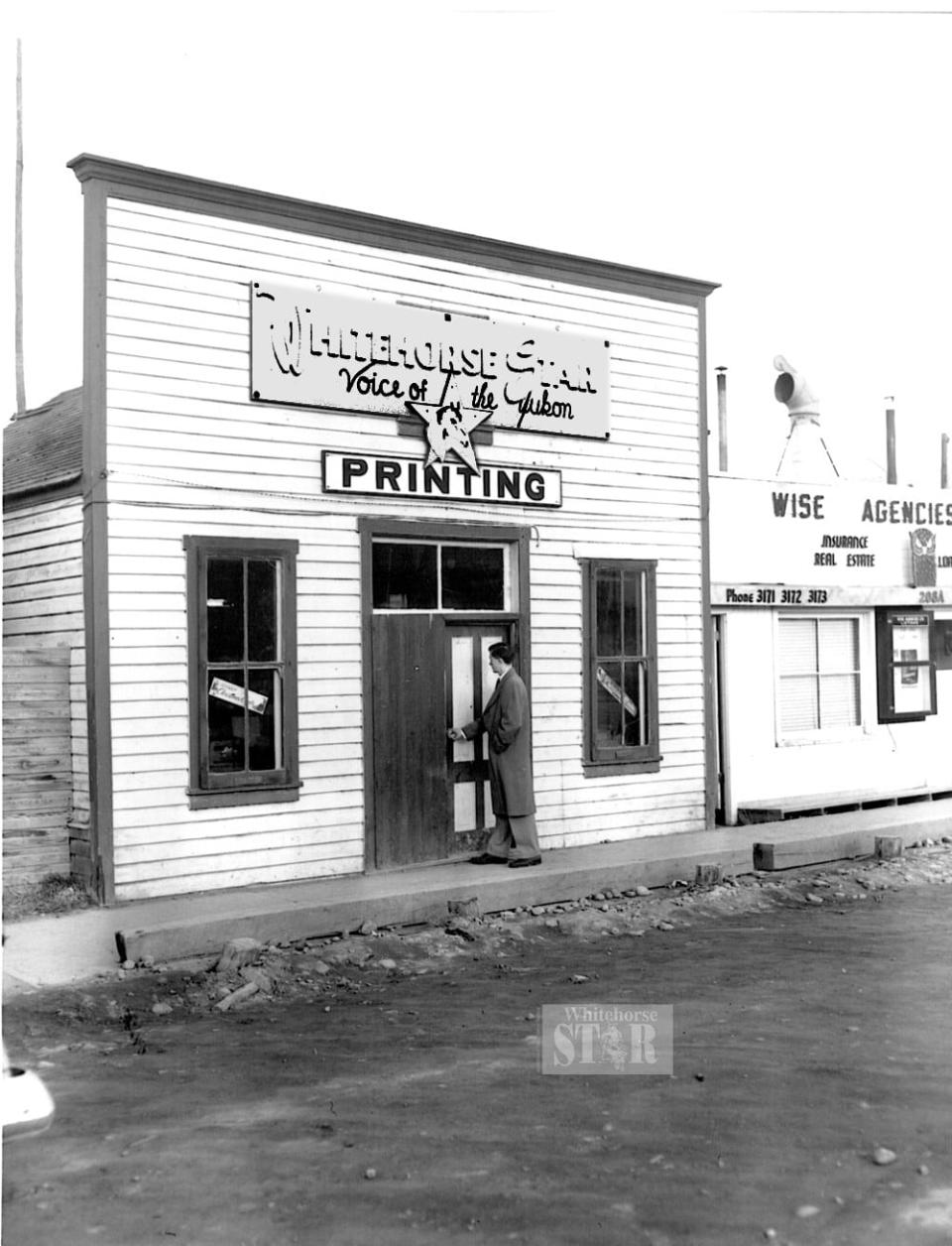
The Whitehorse Star in the 1950s. (Whitehorse Star)
And giving lots of young journalists their start right out of school as well, right?
I've had the privilege of working with scores of young journalists over 45 years, and a lot of them have done very, very well. Some of them wound up at the CBC — see, there is life after the Star, Elyn!
Is there any chance, do you think, that the Star could be saved, and not close on May 17?
Well, what's going to happen is 99 per cent certain. But you never know, this world has seen miracles and who knows, maybe that one per cent will kick in, in the coming weeks. I just can't say, definitively.


